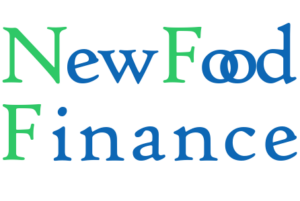Spectroscopy: Lighting up Agri-Food Start-Ups
Graphic of the Week – Five Robo-Tractor Fund-Raisings in 2024

Spectroscopy technology is seizing the imagination of agri-food start-ups, in new applications from precision ag measurement of soil nutrients, biology and carbon, to foodtech applications, verifying crop ripeness or food quality.
Complex data interpretation, plus high upfront costs, has historically limited uptake of spectrometers, a technology introduced to agriculture in the 1960s. However, falling hardware costs – for example as a result of microprocessor and chip-based mini-spectrometers, and interpretative AI – is seeing a wave of new uses.
The prospect of near-instant readouts, without the need for lengthy waits and costly lab-based analysis, is attractive for both agtech and foodtech, by benefiting both farmers and food companies.
Spectroscopy uses absorption and emission of light and radiation, and related measurement of electromagnetic spectra, to differentiate wavelengths of interest. Infrared radiation, for example, is absorbed by covalent bonds between molecules, allowing interpretation of the molecules present (see our Graphic of the Week).
In soil analysis, spectroscopy can be used to measure nutrient levels, soil organic matter, and moisture content, without the need for invasive sampling. The technology has been seized upon for its potential for hand-held probes to measure soil carbon, making regular monitoring more affordable and reliable, thus unlocking soil carbon offset markets. But farmers can also use readings to fine tune applications of fertiliser and soil amendments.
Example companies include Yard Stick (measuring soil carbon); Miraterra (carbon and pH); and Agrorobotica (carbon and nutrients).
Regarding food quality analysis, spectroscopy can also be used by to measure food quality and specific protein, sugar and other content, both of raw materials, and the final product. Example companies include Chemometric Brain (for example, for plant-based protein fraud detection) and MantiSpectra (for smart farming including ripeness monitoring).
New Food Finance: On the Road
Last week, our team attended two significant agri-food start-up events, in London (World Agri-Tech and Future Food-Tech), and in Piracicaba, São Paulo (PwC Agtech Innovation). Following is a scatter of “voxpop” quotes that we collected, as we wandered the halls!
Foodtech investor, on start-ups collectively struggling to seize the moment – “Regarding foodtech, the opportunity is not matching the startup spectrum. The opportunity is enormous. Startups are there, but they are further and fewer.”
Foodtech start-up, quoting a prospective investor – “Don’t be quibbling over valuations, take the money!”
Foodtech equipment provider – “The timing of a foodtech transition is all about regulatory approval, of novel foods. The ultimate scale is about price. If it isn’t cheaper than what’s already there, it may be like organic food, a niche.”
Agtech start-up, on the need for policy incentives for innovative machinery – “Achieving a Series B has been really difficult in this downturn. It’s important government channels step in, to help people afford this product, including farmers.”
Agtech start-up, on the rising business case for sustainable inputs – “We saw a hype cycle; now we’re seeing a lot more pragmatism in the space which is hard and good. The hype has sorted itself. There are massive tailwinds for sustainable inputs – a significant rise in concern around contaminants reaching food.”
Agtech investor, on the best start-up funding model – “Can a three-year VC investment model work for a sector, where technology is only proven annually, in a seasonal crop cycle? Perhaps modelling via ML and AI can now help, to speed things up.”
New Food Finance: Sign up for a 3-day free trial
“Green Transition” Deals of the Week
In our “Green Transition” space last week, we saw fund-raising worth over $149 million:
Canada, October 3 – Entosystem produces proteins and flour from black soldier fly larvae, offering whole larvae, oil, meal, and frass for animal feed and organic farming. The company raised $58 million in venture capital from Sanimax, Fondaction, and Idealist Capital.
Italy, October 2 – Foreverland is an Italian food-tech startup creating premium ingredients from underutilized plant-based by-products like carob, including Choruba, a chocolate substitute. The company raised $3.76 million in pre-venture capital from Grey Silo Ventures, Eatable Adventures, and others.
Estonia, October 1 – ÄIO produces microbial oils for the food, feed, and cosmetics industries, from forestry residues and food industry side streams, using precision fermentation. The company raised $6.75 million from Voima Ventures, Nordic Foodtech VC, SmartCap, and 2C Ventures.
United States, October 1 – Helaina has developed a technology platform to replicate functional proteins found in the human body, such as human lactoferrin, with their product effera™. The company raised $45 million from Avidity Partners, Spark Capital, and others.
United Kingdom, October 1 – MiAlgae aims to replace wild-caught fish as a source of Omega-3 by producing microalgae fed on side streams from the whisky industry. The company raised $24.55 million from SWEN Blue Ocean Partners, Clay Capital, and others.
France, October 1 – Micropep Technologies has developed an AI-driven platform for discovering and producing micro peptide-based bio fungicides and bioherbicides. The company raised $11 million from Corteva and Sparkfood to expand its climate-adaptive agricultural solutions.
